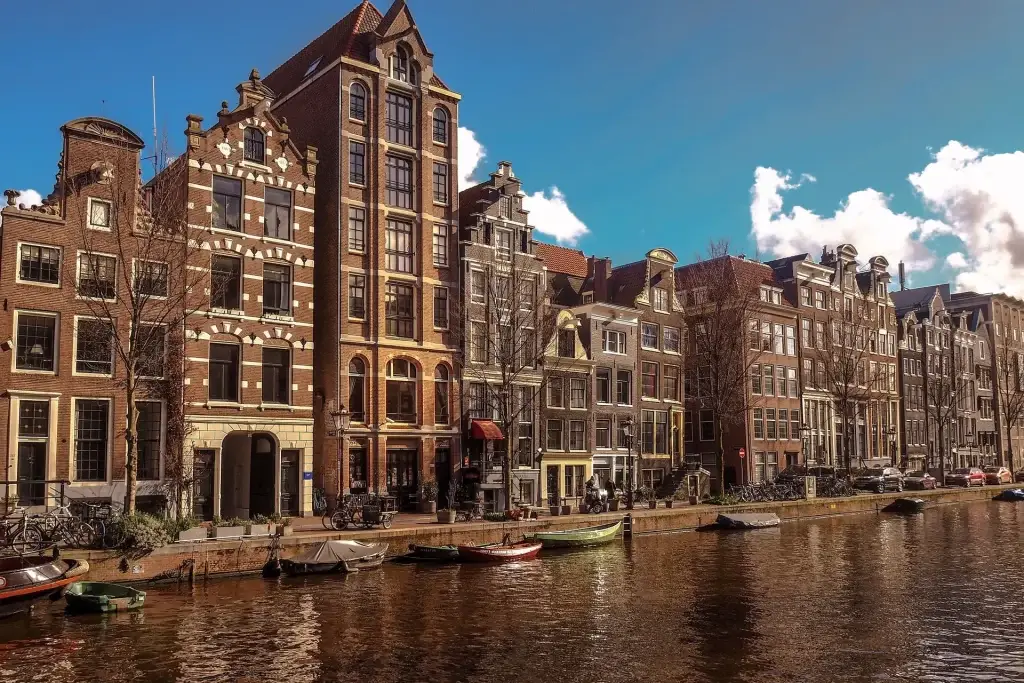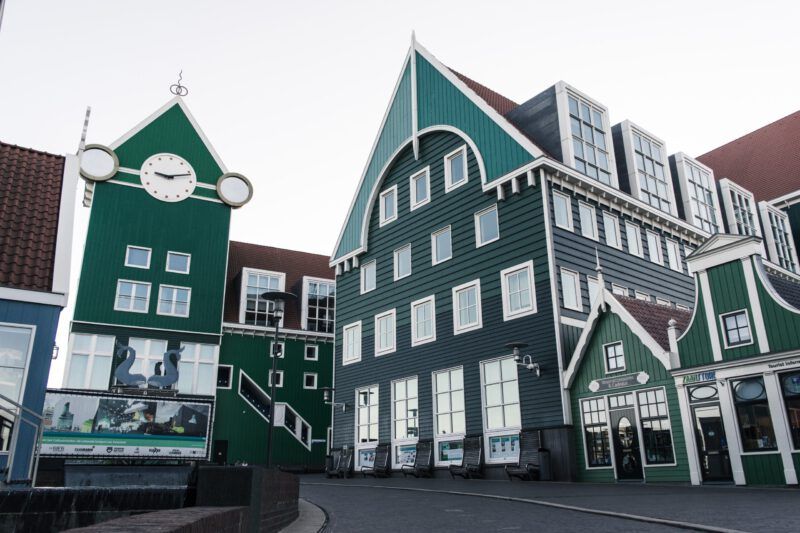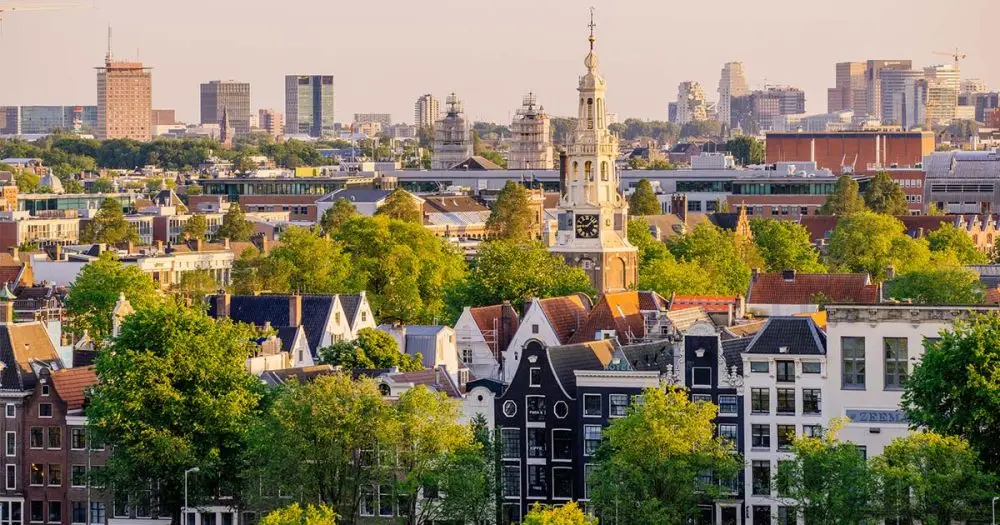Real estate in the Netherlands is traditionally associated with high prices, dense development and frantic demand. Outside Amsterdam and Rotterdam lies another market – more stable, affordable and promising. Dutch cities with cheap property offer a real alternative to overheated metropolises. Here, buying a home offers not only benefits, but also freedom of choice: more square metres, a quieter environment, reliable rental income.
1. emmen: space, ecology and economy
Emmen occupies a key position among destinations with attractive housing costs. The average price per square metre of around €2,100 makes it particularly accessible to first-time investors. This figure remains 40-50 per cent lower than in Rotterdam or Utrecht, and the quality of housing and urban planning remains high. The development of the city is focused on sustainability, with an emphasis on low-carbon transport, energy-efficient neighbourhood redevelopment and the creation of green public areas.
The region is actively developing co-operation with the German border regions. This provides additional population flows, employment in cross-border projects and rental demand. Industrial zones and logistics centres offer jobs, and educational programmes at local colleges strengthen Emmen’s position as a centre of attraction for young people. Dutch cities with cheap property rarely combine sustainability, dynamic development and stable capital growth at once.
2. Heerenveen: sport, stability and logistics
 Heerenveen is not only a sporting symbol of the Netherlands, but also a city with a well-developed infrastructure and a balanced price policy. The cost per square metre is kept at around €2,400, while the city administration continues to invest in roads, digital infrastructure and support for small businesses. Sporting events and academies provide a steady stream of temporary tenants, while logistics companies are developing warehouse properties within the city limits.
Heerenveen is not only a sporting symbol of the Netherlands, but also a city with a well-developed infrastructure and a balanced price policy. The cost per square metre is kept at around €2,400, while the city administration continues to invest in roads, digital infrastructure and support for small businesses. Sporting events and academies provide a steady stream of temporary tenants, while logistics companies are developing warehouse properties within the city limits.
The proximity to the major administrative centres of Groningen and Leeuwarden generates sustained economic activity. The urban layout provides convenient connections to neighbouring regions, making Heerenveen a strategic place to live and invest.
3. Venlo: industry, border, benefit
Venlo is strategically located on the eastern border of the country and is actively using this factor to attract investment. The average cost of housing is around €2,200 per square metre, making the market accessible to both local buyers and international investors. The city is developing as an important logistics hub – there are large distribution centres, warehouses and transport companies oriented to the whole of Benelux and Germany.
The border location allows to attract tenants from different countries. Venlo creates a multicultural environment in which demand for housing remains high all year round. Local authorities are investing in landscaping, modernising roads and simplifying building regulations. Dutch cities with cheap property and access to cross-border business form a unique profile – strong demand, fast tenant turnover and the potential for above-average price growth.
4. tilburg: student drive and cultural dynamics
Tilburg demonstrates a vibrant combination of academic energy, a creative environment and a stable rental market. The university, cultural clusters and festivals form a continuous flow of temporary residents – students, young professionals and teachers. The cost per square metre remains at 2,600 euros, which compares favourably with similar educational centres in the country.
Price growth in Tilburg is uniform – 5-8% per year, due to the interest in investments in compact housing. New neighbourhoods are targeted at a young audience, offering studio flats, public spaces and convenient transport accessibility. The city does not depend on seasonal tourism, which makes the rental market predictable. \
5. Zwolle: administrative stability and silence
Zwolle retains its status as a reliable centre in the north-eastern part of the country. The average cost per square metre – around €2,500 – remains lower than in Utrecht, while the city offers high social stability and a clean environment. As the capital of the Overijssel province, Zwolle manages regional institutions, educational centres and hospitals, which creates a constant demand for renting and buying homes.
Municipal programmes support housing renewal, green renovation of neighbourhoods and affordable housing for families. A well-developed infrastructure and balanced planning make the city a convenient place to live and invest. Where to buy a house cheaper in the Netherlands and still retain all the elements of urban energy – Zwolle holds a strong position among such destinations.
6. Apeldoorn: parks, silence and safety
Apeldoorn offers a quiet and measured life away from the tourist noise. The average price per square metre of €2,400 is combined with high environmental standards, well-developed social infrastructure and security. The town forms an attractive environment for those seeking privacy, stability and clean air.
Demand is fuelled by families, older Europeans and government employees. Apeldoorn is home to parklands, museums, cultural centres and lacks the pressure of mass tourism. This makes housing liquid and resistant to fluctuations in demand. Dutch cities with cheap property rarely combine such quietness with real investment appeal.
7. Leeuwarden: student centre and budgetary choices
Leeuwarden occupies a key place in the educational map of Friesland. The city is actively developing the infrastructure around universities, colleges and research centres. This factor consistently generates a high demand for renting and buying housing. The price per square metre starts from 2,200 euros, and the offer covers a wide range – from small-sized flats to two-storey townhouses.
The city focuses on creating an accessible environment for young professionals and students, combining cultural initiatives, start-up programmes and improved public transport. Leeuwarden offers the opportunity to buy a home with a low entry threshold and a quick income through daily or long-term rentals.
8. De Fenter: history, logistics and growth
De Fenter offers a rare combination of historical atmosphere and industrial pragmatics. The city retains its medieval architecture, cosy centre and active business area. The cost per square metre – between €2,600 and €2,700 – is showing moderate growth, driven by the influx of logistics and retail companies.
The municipality is modernising waterfronts, developing river ports and investing in transport interchanges, which strengthens the city’s position as a logistics hub in the eastern part of the country. Property investments offer stable returns and the possibility of further growth through redevelopment of older neighbourhoods.
9. Oss: an industrial city with potential
Oss is among the hidden favourites among small industrial centres. The city is actively developing the pharmaceutical, chemical and transport sectors, which creates a steady demand for housing from factory and office workers. The average price of €2,300 per square metre makes this city a favourable entry point to the market. The market here is not prone to overheating and allows you to invest without the risk of overvaluation. Dutch cities with cheap property located outside the tourist destinations form a stable tenant base, especially in the long-term rental segment for workers and professionals.
10. Sittard-Gellen: a multicultural cluster
Sittard-Gellen is a border town with a distinctly international character. The cost per square metre – around €2,100 – makes it one of the most affordable in the country. The geographical position between Belgium and Germany allows for the free flow of labour, capital and business connections. This is fuelling interest from expatriates, freelancers and digital specialists.
Dutch cities with cheap property: conclusions
 Dutch cities with cheap property form the second layer of the market, where rationality triumphs over hype. They are suitable for those who build their investment strategy thoughtfully: they evaluate not advertising but parameters, not metres but potential. These cities offer more for less – from a square metre to the standard of living.
Dutch cities with cheap property form the second layer of the market, where rationality triumphs over hype. They are suitable for those who build their investment strategy thoughtfully: they evaluate not advertising but parameters, not metres but potential. These cities offer more for less – from a square metre to the standard of living.
 en
en  ru
ru  de
de  ar
ar  es
es  nl
nl  hi
hi  fr
fr  it
it  pt
pt  el
el 









